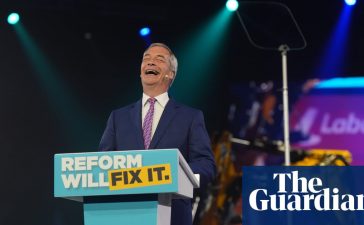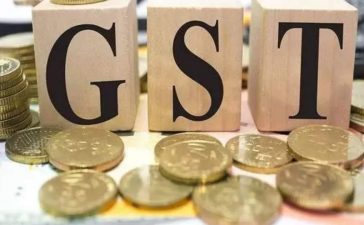Unlock the Editor’s Digest for free
Roula Khalaf, Editor of the FT, selects her favourite stories in this weekly newsletter.
Richard Holden resigned as Conservative party chair on Monday after the Tories suffered their worst general election defeat.
The Conservatives returned 121 MPs in last week’s election, down from 365 in 2019, as Labour secured a landslide victory.
Rishi Sunak unveiled an “interim” shadow cabinet on Monday that will serve until the Tory leader’s successor is chosen, and the party said Holden had resigned as chair.
Holden said in a letter to Sunak he would contribute to a Tory postmortem but would not lead the review.
“I am sure that our party can and will rebuild now, and quickly move to challenge the government in the national interest as we move to take on Labour and win the next general election,” Holden added in his letter.
Richard Fuller, a former minister, was appointed as chair by Sunak.
Lord David Cameron will not take up a shadow post in opposition. The ex-foreign secretary, whom Sunak brought back into government last year for a brief second act in his ministerial career, will leave frontline politics.
Andrew Mitchell, Cameron’s former deputy, becomes shadow foreign secretary.
Jeremy Hunt has been appointed shadow chancellor and James Cleverly shadow home secretary.
Several potential contenders to succeed Sunak, including Victoria Atkins and Kemi Badenoch, have taken shadow cabinet posts. Badenoch, who was business secretary, becomes shadow levelling-up secretary while Atkins, who was health secretary, takes up the shadow role.
Former minister Kevin Hollinrake becomes shadow business secretary.
The Conservative parliamentary party has been hollowed out: only a clutch of senior figures remain as MPs after dozens stepped down before the election or went on to lose their seats.
On Monday, Tory MPs decided to expedite the election to the 1922 committee of a chair and executive. The group represents backbenchers and helps set the rules of leadership contests.
Nominations, hustings and a ballot for the 1922 chair position were expected to take place on Tuesday, so preparations can then get under way for the leadership contest.
Veteran backbenchers Bob Blackman and Geoffrey Clifton-Brown confirmed their intention to stand for the post of 1922 chair, while MPs said Mark Garnier was also considering running.
Blackman, who successfully forced the previous Tory government to back down on plans for a draconian crackdown on rough sleepers, said his pitch was to help the party rebuild.
Clifton-Brown, a long-serving member of the 1922 executive and MP since 1992, highlighted how he had survived the party’s heavy defeat in 1997. He also said he had withstood attempts to dissolve the 1922 committee in 2010.
Blackman and Clifton-Brown said they favoured a longer leadership contest, probably ending in the autumn, to allow the party to take stock.
On Monday, former minister Tobias Ellwood, who lost his seat last week, said he was in touch with about a dozen Conservative colleagues who had also been ousted but hoped to return to parliament in the future.
Ellwood called for an overhaul of Tory rules to empower MPs to choose the party leader, rather than persist with arrangements under which they narrow the field to two candidates and then give the final say to party members. Collectively, Tory MPs are more centrist than the right-wing party membership.









